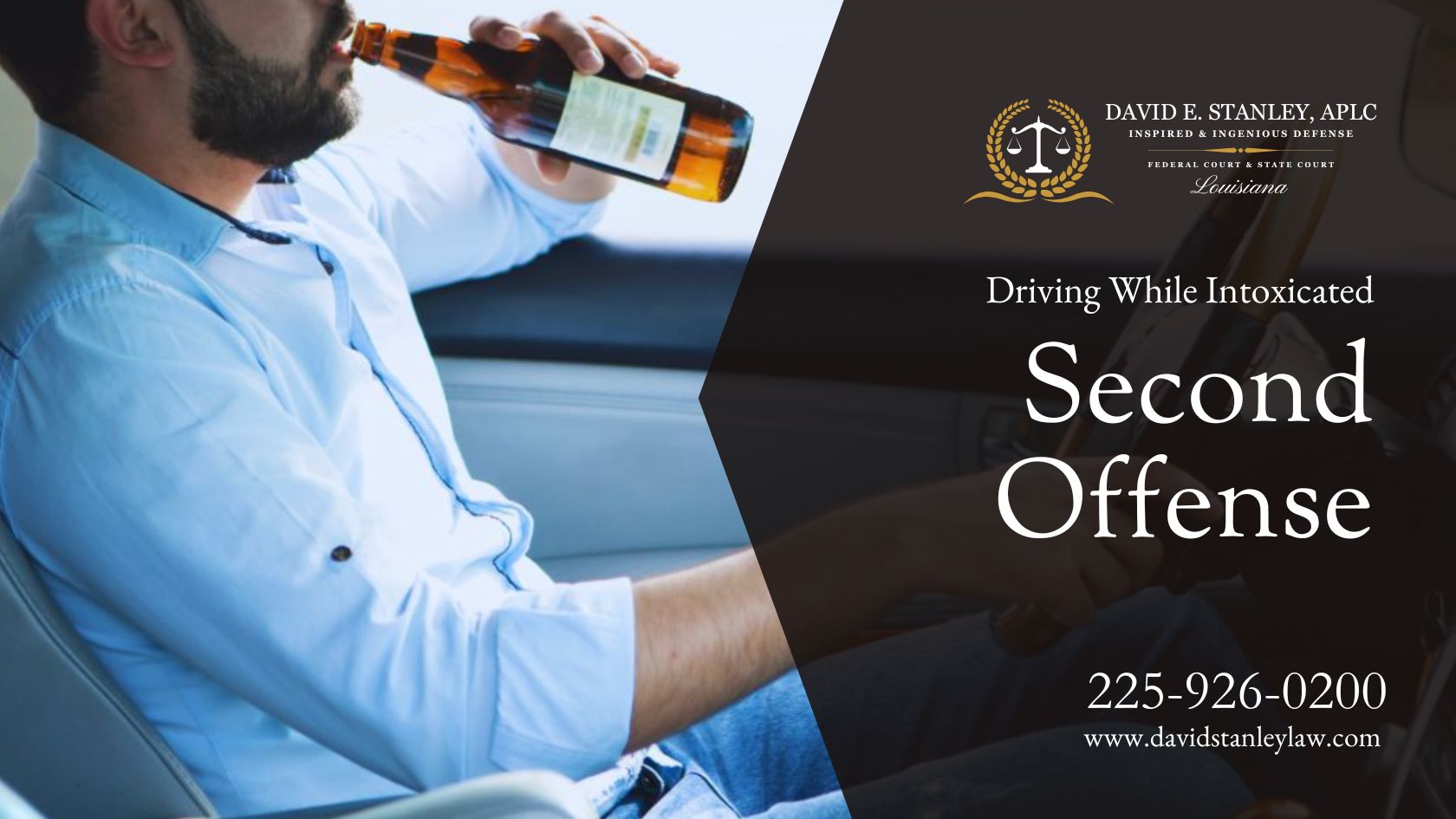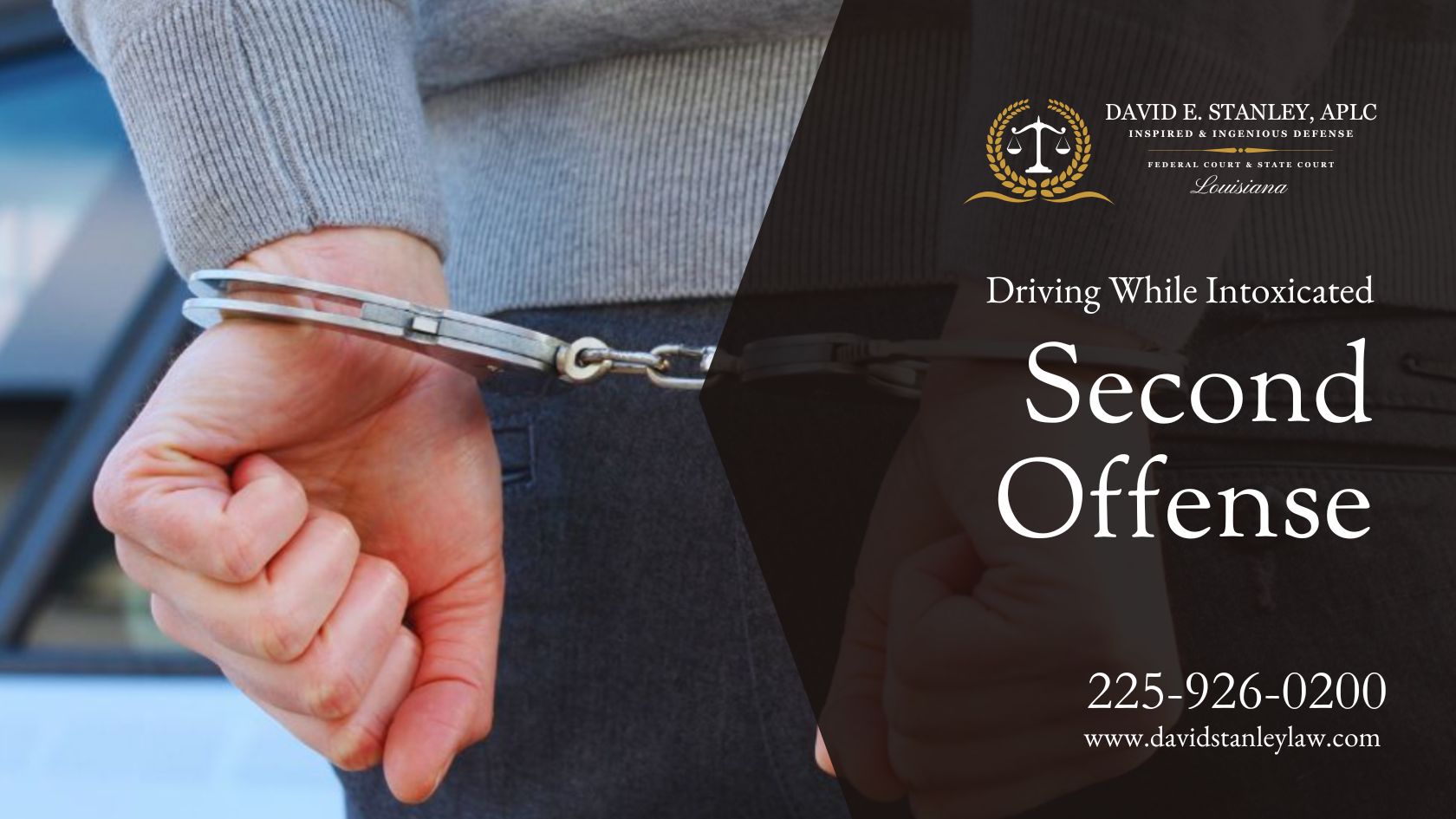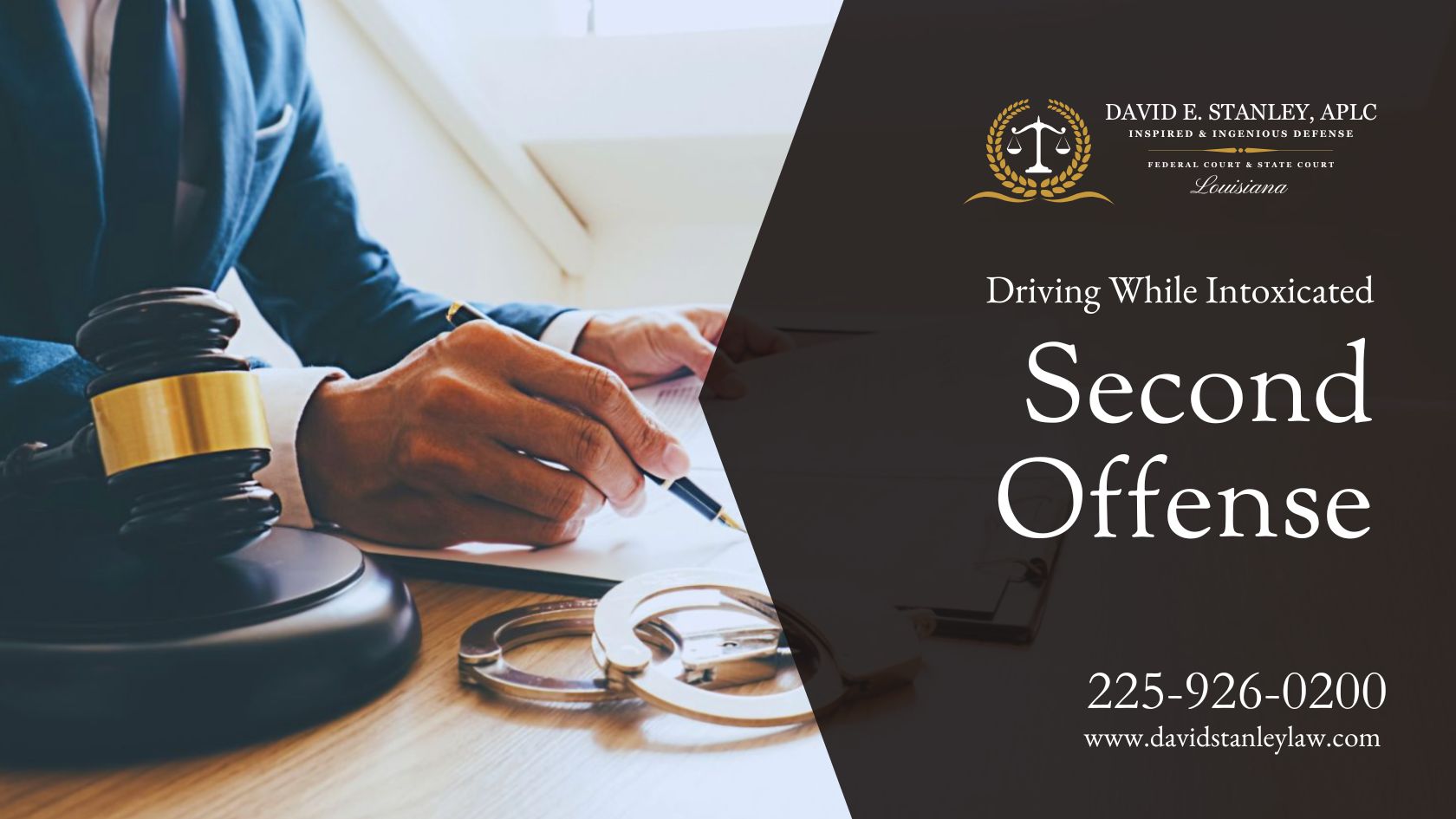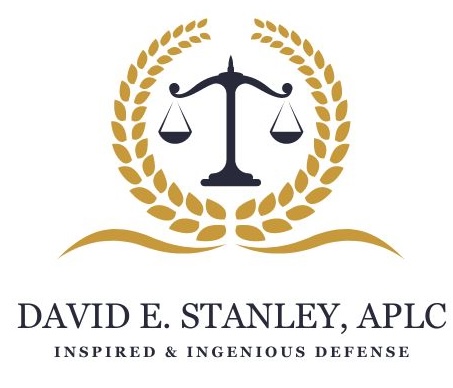Baton Rouge, LA Driving While Intoxicated (Second Offense)
Table of Contents
ToggleIn Louisiana, DWI – Second Offense, is a misdemeanor for individuals convicted of driving while intoxicated within ten years of a prior offense. Penalties are stricter than for a first offense and may include mandatory jail time, probation, community service, and license suspension. The court may also require a substance abuse program, an ignition interlock device, and additional assessments or driving education classes.

David E. Stanley, APLC, defends individuals facing second-offense DWI charges in Louisiana. With extensive experience in DWI cases, he works to reduce penalties, challenge evidence, and build a strong defense. If you’re facing a second DWI, contact David E. Stanley, APLC, today for a consultation.
What You Need to Know About DWI – Second Offense
What Is a DWI – Second Offense?
A second-offense DWI occurs when a person is convicted of driving while intoxicated within ten years of their previous offense. To promote public safety and prevent repeat violations, Louisiana enforces stricter penalties, including fines of up to $1,000, jail time from 30 days to six months, and a license suspension of up to two years. Given the severity of these consequences, legal representation is essential for understanding your rights and defense options.
What Are the Penalties for a Second DWI Offense?
Louisiana imposes strict penalties for a second DWI conviction, which can significantly impact your personal and professional life. These could include a license suspension of up to two years, fines of up to $1,000, and a jail term of 30 days to six months. Offenders may also be required to install an ignition interlock device in their car, complete community service, and participate in alcohol education programs. In light of these possible repercussions, consulting an experienced DWI attorney is crucial to understanding legal options and potential defense strategies.
The Legal Process for a Second DWI Offense
After a second DWI arrest, law enforcement takes you into custody and may conduct field sobriety tests. In court, the prosecution presents evidence like police reports, the field sobriety test results, and breathalyzer or blood test results. Your driver’s license will be suspended, subject to an ignition interlock device being installed in your vehicle, but you may also qualify for a hardship license. Knowing the process and seeking legal guidance can help you navigate the system, stay in control, and defend your rights.
License Suspension and Reinstatement

If your BAC is 0.15 percent or more, then your driver’s license will be subject to a mandatory suspension for four years. However, a hardship license may be available for essential activities like work. To regain driving privileges, you must complete the suspension period, attend an alcohol education program, install an ignition interlock device, and pay reinstatement fees. The reinstatement process can be complex, so consulting an attorney can help enable compliance with all legal obligations.
Defenses Against a Second DWI Charge
Challenging a second DWI charge involves several defense strategies based on the case’s details. A lawyer can dispute the legality of the traffic stop, question BAC test accuracy, or identify procedural errors. Medical conditions affecting behavior may also serve as valid explanations in court. With the right defense, legal representation can help reduce fines or dismiss charges.
Can I Get My DWI – Second Offense Charges Reduced?
Yes, reducing a DWI – second offense charge is possible, depending on factors like evidence strength, procedural errors, and plea negotiations. If BAC test results are inaccurate, police procedures are flawed, or prosecution evidence is weak, a lawyer may negotiate a lesser charge, such as a reduced charge or seek alternative sentencing. Legal assistance can help you explore options to lower fines or pursue alternatives like probation, treatment programs, or diversion programs.
Will I Have to Serve Jail Time?
Yes, a DWI – second offense conviction includes mandatory jail time in Louisiana, typically ranging from 30 days to six months, at least 48 hours of which must be served without benefit of probation parole oa suspension of sentence. However, depending on the case, a skilled attorney may negotiate alternative sentencing options, such as home confinement, work release, or probation. Factors like good behavior, participation in alcohol treatment programs, and plea agreements can positively impact sentencing. Legal representation is important to explore sentencing alternatives and reduce penalties.
How Long Will a Second DWI Stay on My Record?
A second DWI offense remains on your record for 10 years, meaning any additional offenses during this period lead to stricter penalties. After 10 years, the offense may no longer impact sentencing but will still appear on your criminal record. Expungement eligibility depends on specific legal criteria and is not guaranteed. Consulting an attorney can help determine your options.
DWI – Second Offense Defense Lawyer in Baton Rouge, LA

David E. Stanley, APLC, is a DWI – second offense defense lawyer in Baton Rouge, LA, dedicated to protecting your rights and future. A second DWI conviction can lead to severe penalties, including increased fines, extended license suspensions, and possible jail time. With extensive knowledge of Louisiana’s DWI laws, David E. Stanley works to challenge evidence, negotiate reduced penalties, and build a strong defense. Call David E. Stanley, APLC, today for a consultation, and let him fight for you.
Early intervention is key when it comes to DWI charges in Louisiana. The sooner you have a skilled DWI attorney on your side, the better your chances of a favorable resolution. Don’t wait – reach out to David E. Stanley, APLC, now and take the first step towards safeguarding your future.
David E. Stanley, APLC
1055 Laurel Street, Suite 2 Baton Rouge, LA 70802
225-926-0200


